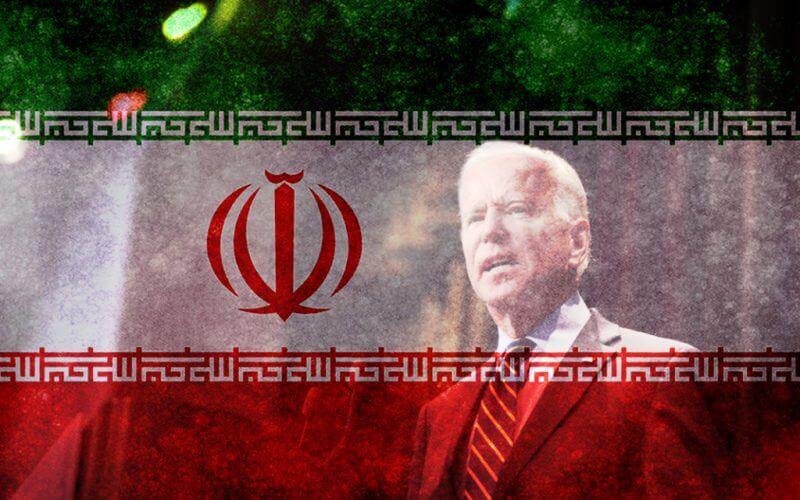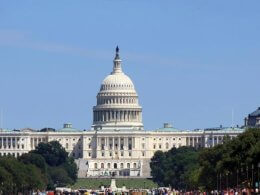1. Meddling in Latin America
As the Islamic Republic of Iran looks to other parts of the world to expand its influence, the regime has successfully grown its presence in Latin America thanks to America's passivity towards left-leaning political leaders in Brazil and other Latin American countries. For several years, the Islamic Republic has grown its network in places like Argentina, Bolivia, Venezuela, and other parts of Latin America, supporting its local proxies in their drug and weapon smuggling in the region. In the most recent elections in Latin America, the Islamic helped cultivate support for many left-leaning candidates like Brazilian President Lula, knowing full well that they could strengthen their economic and military presence without facing the United States. In early March of this year, two Iranian warships docked in Brazil after President Lula gave permission to Iran’s regime.
2. Syria
Following the Syrian Civil War and the failure to cripple the Assad regime, the Islamic Republic of Iran rushed to establish its presence in Damascus, training new terrorist fighters and attacking American forces in the Middle East. As a result of America's lack of presence in the Middle East, specifically in Syria, insurgencies continue to grow. The Assad regime, with help from the Islamic Revolutionary Guards Corps (IRGC) and Iran’s Lebanese Shiite terrorist proxy Hezbollah in Lebanon, has become a militarized state. In the past decade, Iran’s regime has had access to US targets in Syria and has in most instances struck US assets without consequence or retaliation. Most recently, American troops in eastern Syria faced a rocket attack by Islamic Republic militia groups a day after a drone strike from the same groups, killing an American contractor and wounding several American service members.
3. Iraq
Following the invasion of Iraq and the toppling of Saddam Hussein in 2003, Iran was fearful of being attacked by American forces, prompting the regime to halt its nuclear activity. After American troops began pulling out of Iraq, the Islamic Republic took America's passive actions as a sign of weakness, spreading its influence in Baghdad by sponsoring Shiite terrorist militias and Iraqi officials loyal to the regime in Tehran. Since the invasion of Iraq and the lack of confrontation by America, Iran has used Baghdad to train terrorist fighters, smuggle weapons to Syria, Lebanon, and Gaza, and engage in operations against Kurdish fighters. While American forces have targeted different Islamic Shiite terrorist fighters, past administrations have not seriously targeted Islamic Republic officials sponsoring such groups, strengthening the regime to continue their actions. In March of last year, Iran claimed responsibility for a missile barrage that struck near an American consulate complex in northern Iraq, facing verbal condemnations from the US but no grave consequences for its actions. The Biden administration gave the green light on a sanctions waiver in March of this year to allow Iraq to make cash payments for electricity to Iran, allowing the regime to receive $500 million from Baghdad.
4. Oil Trade
Following the Biden administration's plan to enact green energy in the US and the closing of oil drilling, the US has come to rely on the Islamic Republic of Iran for its oil in the international markets, allowing the regime to have funds necessary to support itself and its terrorist activities. In the past several years, Iran has smuggled its oil production to countries like Russia, Venezuela, and China, using the funds to support top-level officials in the government and the Revolutionary Guards in their mission to export terrorism throughout the Middle East. As Iran continues to engage in illegal oil trade, it has also attacked Israeli and Saudi oil tankers in the Persian Gulf through military drones, facing no credible consequences from the US but verbal condemnations from officials. When the Biden administration revived talks with Tehran over the 2015 Iran nuclear agreement, American officials agreed to grant the regime oil waivers, allowing Tehran to unleash its oil supply in the world market and obtain billions in sales. While many American officials have called on the US to open up domestic oil drilling and enact sanctions against Iran, the Biden administration continues to hold out hope of a deal with Tehran, thus taking a passive approach to the Islamic Republic's oil trade.
5. Crackdown on Protests
Following the creation of the Islamic Republic of Iran and the protests in 1999, 2009, and 2019, the Islamic Republic of Iran has faced little consequence from the US, cracking down on peaceful protesters using brutal means. Following the 2009 Green Revolution and the calls by ordinary Iranians for support from the Obama administration, the President refused to act, opting instead to negotiate with the then-Ahmadinejad government to agree to the 2015 nuclear agreement. While past American officials have condemned such actions and issued sanctions against the regime for its brutal crackdowns and executions, the US has refused to act more confrontationally against Iran, sending a message to the ayatollahs that they can continue to suppress the people of Iran without fearing the US. After the death of 22-year-old Mahsa Amini in September 2022, many Iranian Americans called on the US to stand with the people of Iran and confront the Islamic Republic for their repressive actions. While the Biden administration has condemned Iran for its brutal crackdowns on peaceful protesters, the administration has not called for regime change, continuing to hold out hope for a nuclear agreement with Tehran, sending mixed signals to anti-Islamic regime protesters.
Related Story: 5 Ways Iran’s Regime Has Benefited from the Biden Admin










